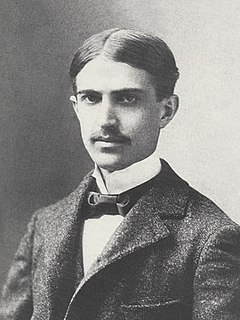A Quote by Napoleon Bonaparte
This soldier, I realized, must have had friends at home and in his regiment; yet he lay there deserted by all except his dog. I looked on, unmoved, at battles which decided the future of nations. Tearless, I had given orders which brought death to thousands. Yet here I was stirred, profoundly stirred, stirred to tears. And by what? By the grief of one dog. Napoleon Bonaparte, on finding a dog beside the body of his dead master, licking his face and howling, on a moonlit field after a battle. Napoleon was haunted by this scene until his own death.
Quote Topics
After
Battle
Battles
Beside
Body
Bonaparte
Brought
Dead
Death
Decided
Deserted
Dog
Except
Face
Field
Finding
Friends
Future
Given
Grief
Had
Haunted
His
Home
Howling
I Realized
Lay
Licking
Looked
Master
Must
Napoleon
Nations
Orders
Own
Profoundly
Realized
Regiment
Scene
Soldier
Tears
Thousands
Until
Which
Related Quotes
The love of a dog for his master is notorious; in the agony of death he has been known to caress his master, and everyone has heard of the dog suffering under vivisection, who licked the hand of the operator; this man, unless he had a heart of stone, must have felt remorse to the last hour of his life.
Fireheart tensed, waiting for whatever had hunted down these apprentices to emerge from the trees and attack, but nothing stirred. Feeling as if his legs hardly belonged to him, he sprang down and stumbled across to Swiftpaw. The apprentice lay on his side, his legs splayed out. His black-and-white fur was torn, and his body was covered with dreadful wounds, ripped by teeth far bigger than any cat's. His jaws still snarled and his eyes glared. He was dead, and Fireheart could see that he had died fighting.
He[Napoleon] had destroyed only one thing: the Jacobin Revolution, the dream of equality, liberty and fraternity, and of the people rising in its majesty to shake off oppression. It was a more powerful myth than his, for after his fall it was this, and not his memory, which inspired the revolutions of the nineteenth century, even in his own country.
A dog will recognize his master in whatever way he dresses. The master may dress in robes, suit and tie, or stand naked, but the dog will always recognize his master. If we cannot recognize God, our beloved master, when he comes in a different dress from another religion, then we are less than that dog.
His face set in grim determination, Richard slogged ahead, his fingers reaching up to touch the tooth under his shirt. Loneliness, deeper than he had never known, sagged his shoulders. All his friends were lost to him. He knew now that his life was not his own. It belonged to his duty, to his task. He was the Seeker. Nothing more. Nothing less. Not his own man, but a pawn to be used by others. A tool, same as his sword, to help others, that they might have the life he had only glimpsed for a twinkling. He was no different from the dark things in the boundary. A bringer of death.
The master in the art of living makes little distinction between his work and his play, his labor and his leisure, his mind and his body, his information and his recreation, his love and his religion. He hardly knows which is which. He simply pursues his vision of excellence at whatever he does, leaving others to decide whether he is working or playing. To him he's always doing both.












































